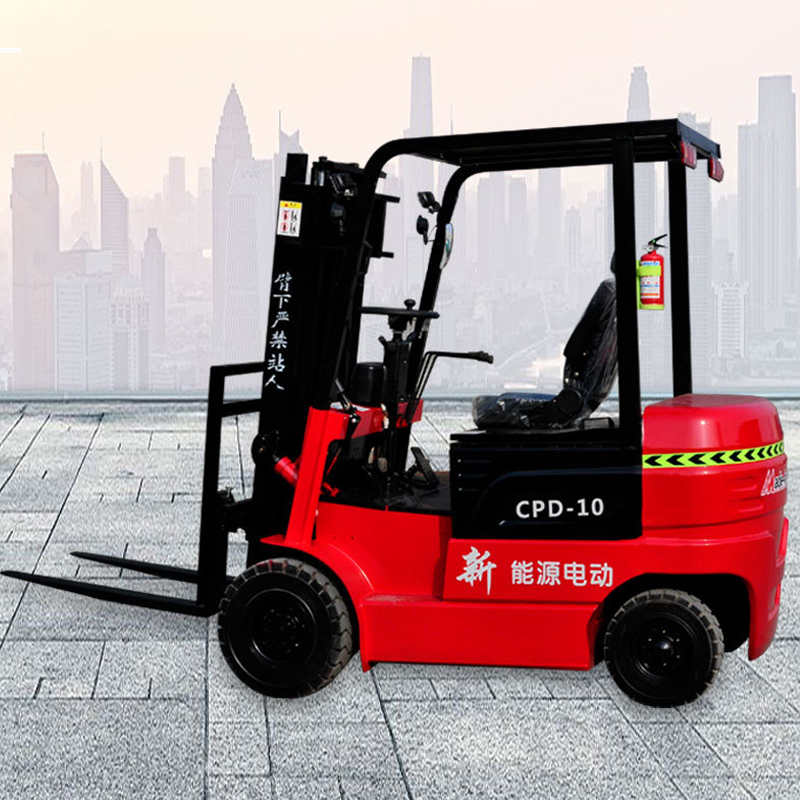- Home >
- Product >
- Forklift >
- Electric Forklift >
- View Details
DF40 Electrically operated forklift factory outlet Electric Forklift
These innovative machines are rewriting the rules of logistics, offering a cleaner, quieter, and more cost-effective alternative to conventional internal combustion forklifts. In this comprehensive guide, we will delve into the features, advantages, diverse types, and extensive applications of electric forklifts.
- CPD40
- ZHUOXIN
- Electrically operated forklift
- shandong.china
- TT, Paypal, Credit card, Western union
- +86-15163766288
- Electric forklifts are available in various types, each tailored to specific material handling needs:Counterbalance Electric Forklifts: Versatile and suitable for a wide range of tasks, these forklifts are commonly used in warehouses, manufacturing facilities, and distribution centers.
Description

Electric forklifts have emerged as transformative tools in the realm of material handling, representing a harmonious blend of efficiency, sustainability, and versatility. These innovative machines are rewriting the rules of logistics, offering a cleaner, quieter, and more cost-effective alternative to conventional internal combustion forklifts. In this comprehensive guide, we will delve into the features, advantages, diverse types, and extensive applications of electric forklifts.
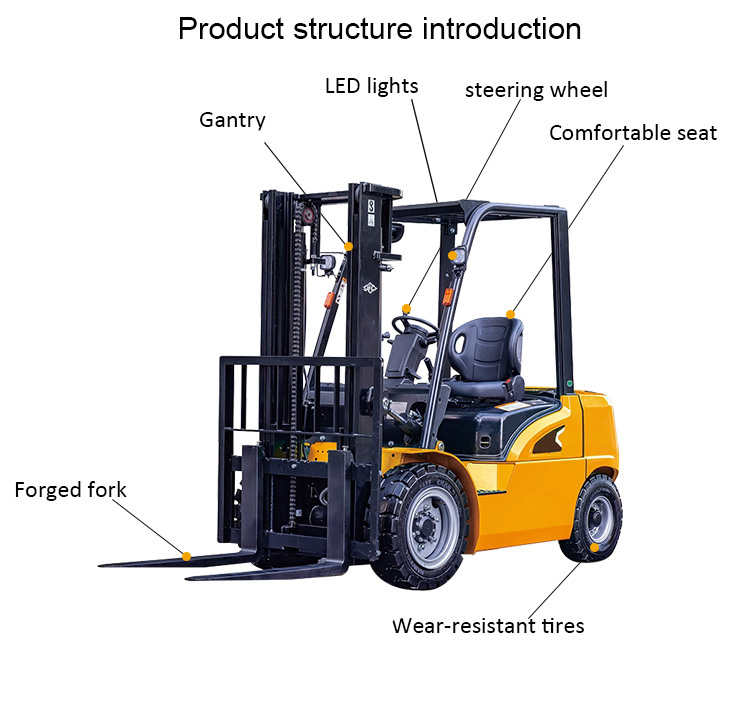
Features of Electric Forklifts:
Electric Power: Electric forklifts are powered by rechargeable batteries, significantly reducing emissions and minimizing the environmental impact associated with fossil fuel consumption.
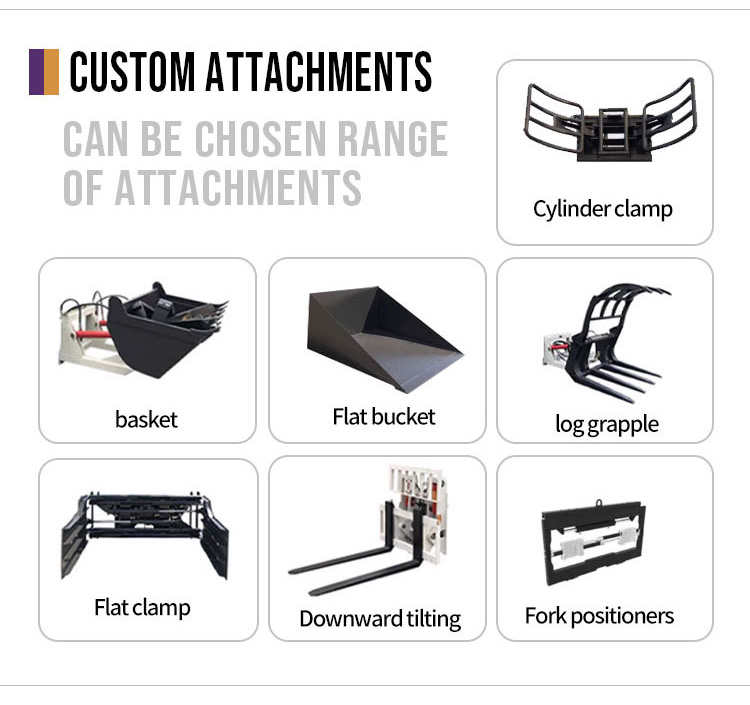
Silent Operation: Electric forklifts operate almost silently, contributing to a quieter and less disruptive work environment, especially in indoor settings.
Energy Efficiency: Renowned for their energy efficiency, electric forklifts offer lower operational costs over time, as electricity is often a more cost-effective energy source.
Precision Handling: Electric forklifts provide precise control and exceptional maneuverability, making them ideal for delicate loads and navigating tight spaces.
Compact Design: Many electric forklift models feature a compact footprint, enabling them to excel in narrow aisles and confined storage spaces.
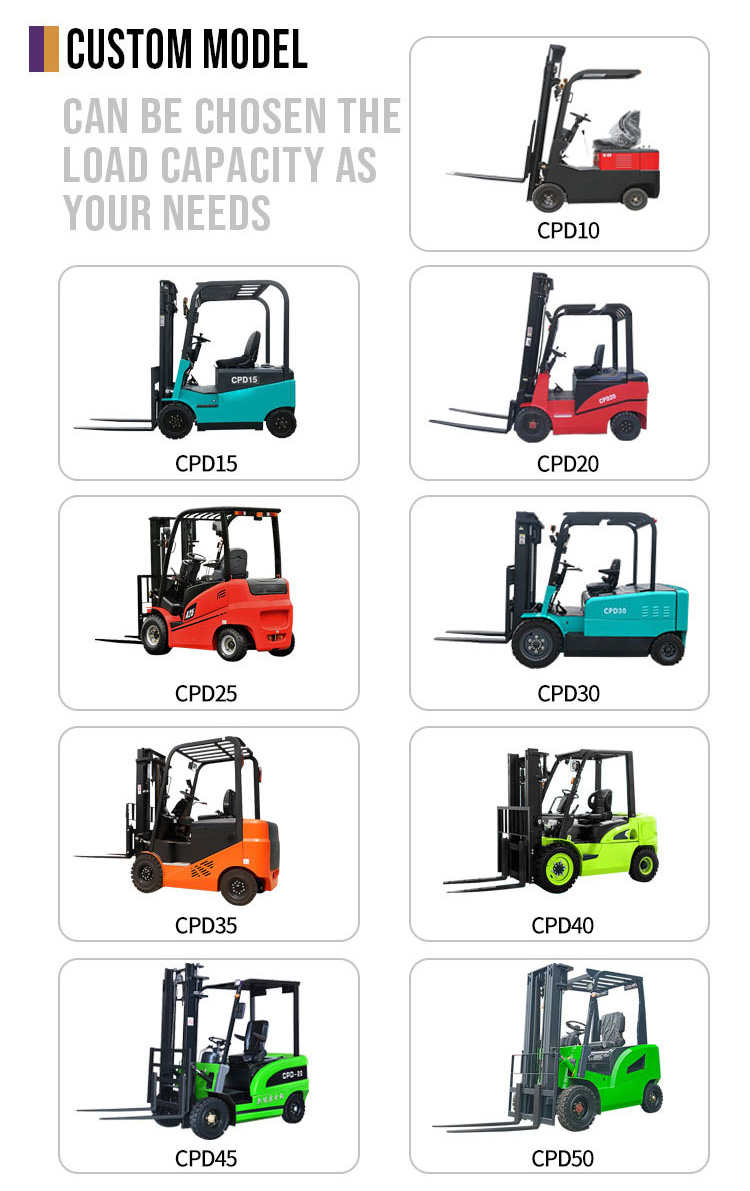
Types of Electric Forklifts:
Electric forklifts are available in various types, each tailored to specific material handling needs:
Counterbalance Electric Forklifts: Versatile and suitable for a wide range of tasks, these forklifts are commonly used in warehouses, manufacturing facilities, and distribution centers.
Three-Wheel Electric Forklifts: Engineered for exceptional maneuverability, they shine in confined spaces and narrow aisles, enhancing productivity indoors.
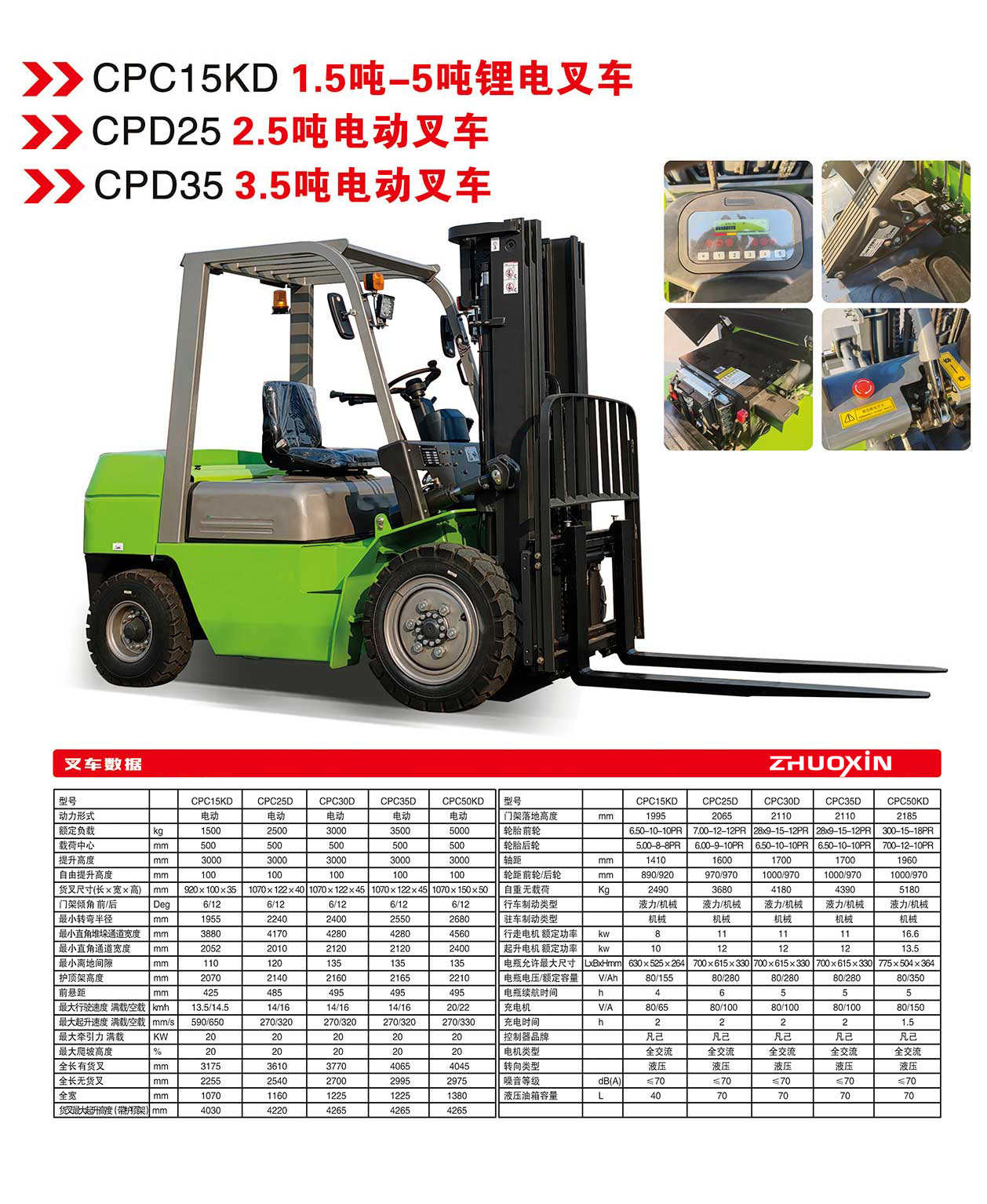
Warehouse Reach Trucks: Reach trucks are designed for high stacking in narrow aisles, making them essential for efficient use of vertical storage space.
Electric Pallet Jacks: Electric pallet jacks streamline the movement of palletized loads within warehouses, ensuring efficient distribution processes.
Order Pickers: Tailored for efficient item selection from shelves at varying heights, they are crucial for fulfilling customer orders in e-commerce and retail settings.

Advantages of Electric Forklifts:
Eco-Friendly Operation: Electric forklifts produce zero emissions, aligning with sustainability goals and contributing to a cleaner and greener work environment.
Cost-Efficiency: Lower operating costs, reduced maintenance requirements, and energy efficiency make electric forklifts a cost-effective choice over the long term.
Reduced Noise Pollution: Their quiet operation reduces noise pollution, making them ideal for indoor use without causing disruptions to the surrounding environment.
Enhanced Workplace Safety: Precise load handling and reduced emissions contribute to improved workplace safety and air quality, promoting the well-being of employees.
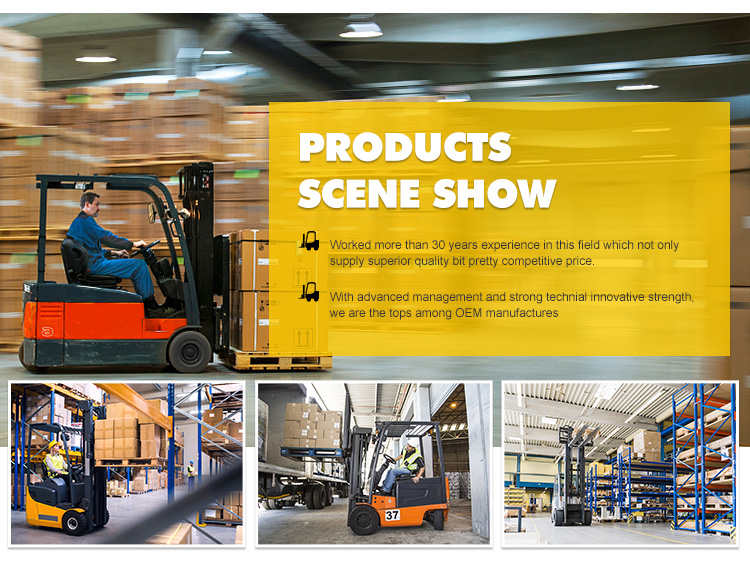
Applications of Electric Forklifts:
Electric forklifts find diverse applications across industries, including:
Warehousing and Distribution: Electric forklifts are indispensable for efficiently moving, stacking, and organizing goods in warehouses and distribution centers.
Manufacturing: They play a vital role in production processes, facilitating the movement of raw materials and finished products within manufacturing facilities.
Retail: Electric forklifts assist in stocking shelves, managing inventory, and fulfilling customer orders in retail environments.
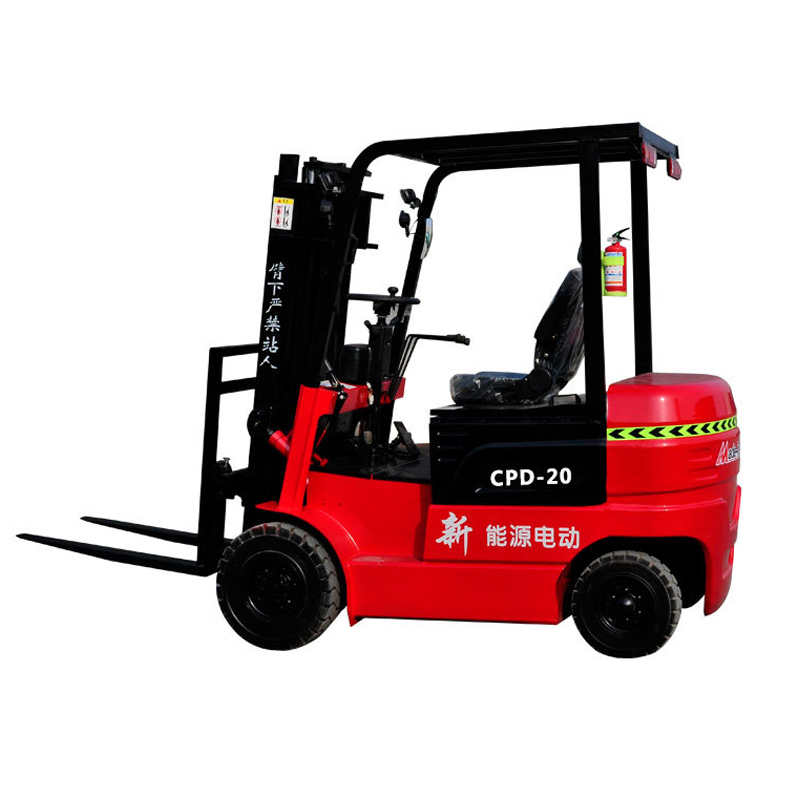
Construction: Compact electric forklifts are deployed at construction sites for transporting materials and equipment efficiently within job sites.
Agriculture: They are utilized in agricultural operations, aiding in handling produce, managing inventory in barns, and streamlining farm operations.
Conclusion:
Electric forklifts have redefined material handling, embodying sustainability, efficiency, and cost-effectiveness. Their ability to provide precise control, reduce noise, and minimize emissions aligns seamlessly with the growing emphasis on eco-friendly practices across industries. As businesses continue to prioritize environmental responsibility and operational efficiency, electric forklifts are set to remain at the forefront of modern material handling solutions, driving innovation and sustainability in logistics and distribution.
Electric forklifts have emerged as pioneering solutions in the world of material handling, combining efficiency, sustainability, and adaptability to meet the demands of modern industry. These eco-friendly machines have redefined the way businesses move and manage materials, providing a cleaner, quieter, and cost-effective alternative to traditional internal combustion forklifts. In this comprehensive overview, we will delve into the features, benefits, types, and diverse applications of electric forklifts.
Features of Electric Forklifts:
Electric-Powered Efficiency: Electric forklifts rely on rechargeable batteries as their power source, significantly reducing carbon emissions and environmental impact compared to their fossil fuel counterparts.
Whisper-Quiet Operation: Electric forklifts operate almost silently, contributing to a more peaceful and productive work environment, especially in noise-sensitive areas.
Energy-Efficient: Renowned for their energy efficiency, electric forklifts translate into lower operational costs over time, as electricity is often more economical than other fuels.
Precision Handling: Electric forklifts offer precise control and maneuverability, making them ideal for handling delicate loads or working in confined spaces.
Compact Design: Many electric forklift models are designed with a compact footprint, enabling them to navigate narrow aisles and tight storage spaces with ease.
Electric forklifts Types of Electric Forklifts:
Electric forklifts come in several types, each tailored to specific material handling needs:
Counterbalance Electric Forklifts: Versatile and suitable for general material handling tasks, these forklifts are commonly used in warehouses, factories, and distribution centers.
Three-Wheel Electric Forklifts: Engineered for exceptional maneuverability in confined spaces and narrow aisles, they excel in indoor settings.
Warehouse Reach Trucks: Reach trucks are designed for high stacking in narrow aisles, optimizing vertical storage space utilization.
Electric Pallet Jacks: Electric pallet jacks simplify the movement of palletized loads within warehouses, streamlining distribution processes.
Order Pickers: Order pickers are tailored for efficient item selection from shelves at varying heights, essential for e-commerce and retail fulfillment centers.
Electric forklifts Advantages of Electric Forklifts:
Eco-Conscious Operation: Electric forklifts produce zero emissions, contributing to a greener, more sustainable work environment and aligning with environmental goals.
Cost-Effective: Lower operating costs, reduced maintenance requirements, and energy efficiency make electric forklifts a cost-effective choice in the long term.
Reduced Noise Levels: The quiet operation of electric forklifts minimizes noise pollution, making them well-suited for indoor use without causing disruptions.
Enhanced Safety: Precise load handling and reduced emissions improve workplace safety and air quality, promoting employee well-being.
Electric forklifts Applications of Electric Forklifts:
Electric forklifts find diverse applications across industries, including:
Warehousing and Distribution: Electric forklifts are indispensable for efficiently moving, stacking, and retrieving goods in warehouses and distribution centers.
Manufacturing: They play a crucial role in production processes by facilitating the movement of raw materials and finished products.
Retail: Electric forklifts assist in restocking store shelves, managing inventory, and fulfilling customer orders in retail settings.
Construction: Compact electric forklifts are utilized in construction sites for transporting materials and equipment within job sites.
Agriculture: They are employed in agricultural operations, aiding in handling produce and managing inventory in barns and storage facilities.
Electric forklifts Conclusion:
Electric forklifts represent a paradigm shift in material handling, embodying sustainability, efficiency, and cost-effectiveness. Their ability to provide precise control, minimize noise, and reduce emissions aligns seamlessly with the growing emphasis on eco-friendly practices in industries worldwide. As businesses continue to prioritize environmental responsibility and operational efficiency, electric forklifts are poised to remain at the forefront of modern material handling solutions, driving sustainability and innovation in logistics and distribution.

Features of Electric Forklifts:
Electric Power: Electric forklifts are powered by rechargeable batteries, significantly reducing emissions and minimizing the environmental impact associated with fossil fuel consumption.

Silent Operation: Electric forklifts operate almost silently, contributing to a quieter and less disruptive work environment, especially in indoor settings.
Energy Efficiency: Renowned for their energy efficiency, electric forklifts offer lower operational costs over time, as electricity is often a more cost-effective energy source.
Precision Handling: Electric forklifts provide precise control and exceptional maneuverability, making them ideal for delicate loads and navigating tight spaces.
Compact Design: Many electric forklift models feature a compact footprint, enabling them to excel in narrow aisles and confined storage spaces.

Types of Electric Forklifts:
Electric forklifts are available in various types, each tailored to specific material handling needs:
Counterbalance Electric Forklifts: Versatile and suitable for a wide range of tasks, these forklifts are commonly used in warehouses, manufacturing facilities, and distribution centers.
Three-Wheel Electric Forklifts: Engineered for exceptional maneuverability, they shine in confined spaces and narrow aisles, enhancing productivity indoors.

Warehouse Reach Trucks: Reach trucks are designed for high stacking in narrow aisles, making them essential for efficient use of vertical storage space.
Electric Pallet Jacks: Electric pallet jacks streamline the movement of palletized loads within warehouses, ensuring efficient distribution processes.
Order Pickers: Tailored for efficient item selection from shelves at varying heights, they are crucial for fulfilling customer orders in e-commerce and retail settings.

Advantages of Electric Forklifts:
Eco-Friendly Operation: Electric forklifts produce zero emissions, aligning with sustainability goals and contributing to a cleaner and greener work environment.
Cost-Efficiency: Lower operating costs, reduced maintenance requirements, and energy efficiency make electric forklifts a cost-effective choice over the long term.
Reduced Noise Pollution: Their quiet operation reduces noise pollution, making them ideal for indoor use without causing disruptions to the surrounding environment.
Enhanced Workplace Safety: Precise load handling and reduced emissions contribute to improved workplace safety and air quality, promoting the well-being of employees.

Applications of Electric Forklifts:
Electric forklifts find diverse applications across industries, including:
Warehousing and Distribution: Electric forklifts are indispensable for efficiently moving, stacking, and organizing goods in warehouses and distribution centers.
Manufacturing: They play a vital role in production processes, facilitating the movement of raw materials and finished products within manufacturing facilities.
Retail: Electric forklifts assist in stocking shelves, managing inventory, and fulfilling customer orders in retail environments.

Construction: Compact electric forklifts are deployed at construction sites for transporting materials and equipment efficiently within job sites.
Agriculture: They are utilized in agricultural operations, aiding in handling produce, managing inventory in barns, and streamlining farm operations.
Conclusion:
Electric forklifts have redefined material handling, embodying sustainability, efficiency, and cost-effectiveness. Their ability to provide precise control, reduce noise, and minimize emissions aligns seamlessly with the growing emphasis on eco-friendly practices across industries. As businesses continue to prioritize environmental responsibility and operational efficiency, electric forklifts are set to remain at the forefront of modern material handling solutions, driving innovation and sustainability in logistics and distribution.
Electric forklifts have emerged as pioneering solutions in the world of material handling, combining efficiency, sustainability, and adaptability to meet the demands of modern industry. These eco-friendly machines have redefined the way businesses move and manage materials, providing a cleaner, quieter, and cost-effective alternative to traditional internal combustion forklifts. In this comprehensive overview, we will delve into the features, benefits, types, and diverse applications of electric forklifts.
Features of Electric Forklifts:
Electric-Powered Efficiency: Electric forklifts rely on rechargeable batteries as their power source, significantly reducing carbon emissions and environmental impact compared to their fossil fuel counterparts.
Whisper-Quiet Operation: Electric forklifts operate almost silently, contributing to a more peaceful and productive work environment, especially in noise-sensitive areas.
Energy-Efficient: Renowned for their energy efficiency, electric forklifts translate into lower operational costs over time, as electricity is often more economical than other fuels.
Precision Handling: Electric forklifts offer precise control and maneuverability, making them ideal for handling delicate loads or working in confined spaces.
Compact Design: Many electric forklift models are designed with a compact footprint, enabling them to navigate narrow aisles and tight storage spaces with ease.
Electric forklifts Types of Electric Forklifts:
Electric forklifts come in several types, each tailored to specific material handling needs:
Counterbalance Electric Forklifts: Versatile and suitable for general material handling tasks, these forklifts are commonly used in warehouses, factories, and distribution centers.
Three-Wheel Electric Forklifts: Engineered for exceptional maneuverability in confined spaces and narrow aisles, they excel in indoor settings.
Warehouse Reach Trucks: Reach trucks are designed for high stacking in narrow aisles, optimizing vertical storage space utilization.
Electric Pallet Jacks: Electric pallet jacks simplify the movement of palletized loads within warehouses, streamlining distribution processes.
Order Pickers: Order pickers are tailored for efficient item selection from shelves at varying heights, essential for e-commerce and retail fulfillment centers.
Electric forklifts Advantages of Electric Forklifts:
Eco-Conscious Operation: Electric forklifts produce zero emissions, contributing to a greener, more sustainable work environment and aligning with environmental goals.
Cost-Effective: Lower operating costs, reduced maintenance requirements, and energy efficiency make electric forklifts a cost-effective choice in the long term.
Reduced Noise Levels: The quiet operation of electric forklifts minimizes noise pollution, making them well-suited for indoor use without causing disruptions.
Enhanced Safety: Precise load handling and reduced emissions improve workplace safety and air quality, promoting employee well-being.
Electric forklifts Applications of Electric Forklifts:
Electric forklifts find diverse applications across industries, including:
Warehousing and Distribution: Electric forklifts are indispensable for efficiently moving, stacking, and retrieving goods in warehouses and distribution centers.
Manufacturing: They play a crucial role in production processes by facilitating the movement of raw materials and finished products.
Retail: Electric forklifts assist in restocking store shelves, managing inventory, and fulfilling customer orders in retail settings.
Construction: Compact electric forklifts are utilized in construction sites for transporting materials and equipment within job sites.
Agriculture: They are employed in agricultural operations, aiding in handling produce and managing inventory in barns and storage facilities.
Electric forklifts Conclusion:
Electric forklifts represent a paradigm shift in material handling, embodying sustainability, efficiency, and cost-effectiveness. Their ability to provide precise control, minimize noise, and reduce emissions aligns seamlessly with the growing emphasis on eco-friendly practices in industries worldwide. As businesses continue to prioritize environmental responsibility and operational efficiency, electric forklifts are poised to remain at the forefront of modern material handling solutions, driving sustainability and innovation in logistics and distribution.
Tags
Get the latest price? We'll respond as soon as possible(within 12 hours)





















